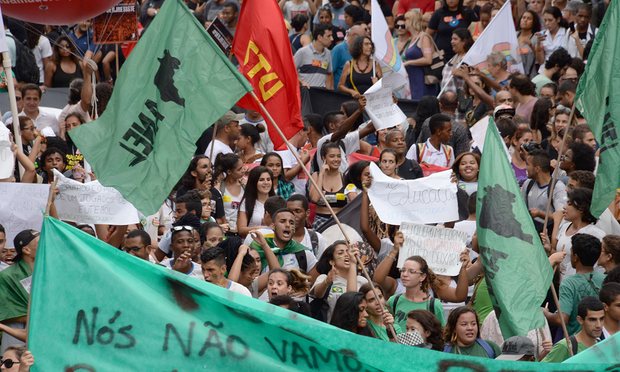
GDP fell 3.8% in 2015 as collapse in oil prices, rising inflation and political turmoil took toll.
Brazil’s economy suffered its worst slump for quarter of a century last year as a global commodity rout, a domestic political crisis and rising inflation forced businesses to slash spending and jobs.
Economists warned that the country’s recession had further to run and could deepen amid fresh signs that a drop in demand has continued into 2016.
Official figures showed Brazil’s GDP fell 3.8% in 2015, the steepest decline since 1990, when the country was battling hyperinflation. Last year finished on a gloomy note with fourth quarter GDP down 1.4% on the previous quarter against the backdrop of a deepening political corruption scandal.
The Brazilian economy is expected to shrink again by more than 3.0% this year, the worst consecutive annual plunges since records began in 1901. Four years ago, the economy was growing by more than 4.0% a year.
The gloomy news will raise pressure on President Dilma Rousseff, who is fighting efforts to impeach her over charges that she used money from state-run banks to plug holes in the budget.
More timely figures showed the private sector contracted at a record pace last month. The Brazil composite output index, published by data company Markit, dropped to its lowest since the survey began in 2007. The index, which tracks companies across the economy, dropped to 39 in February, marking the 12th month running below the 50-point mark that separates expansion from contraction.
Brazil’s economy had been hit hard by a collapse in commodity and oil prices in the past two years, said Mihir Kapadia, head of Sun Global Investments, an emerging markets wealth management company in London.
“The situation has been made worse by the high debt levels, especially in foreign currency – essentially in US dollars. Problems of governance, corruption and political issues have created a perfect storm for continued political instability,” Kapadia added.
“Things will improve if the recent recovery in oil prices and commodities continues but there are few grounds for great optimism in the short run.”